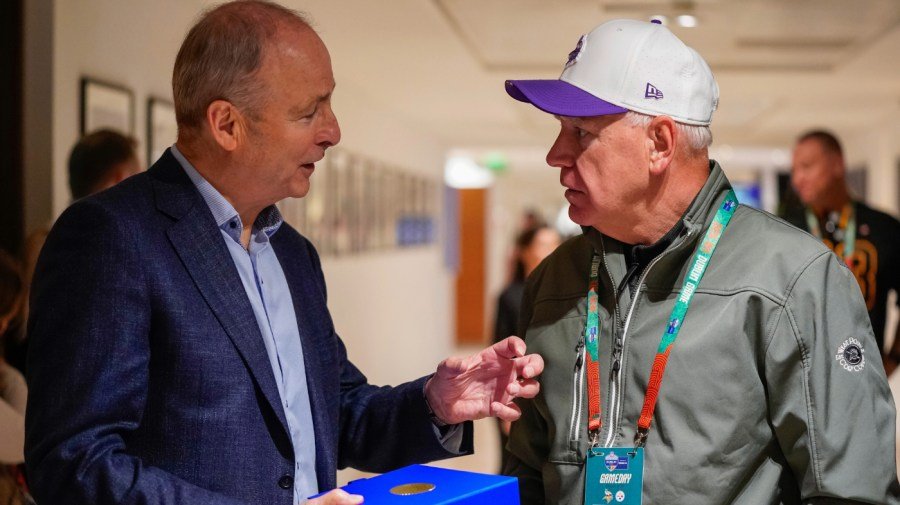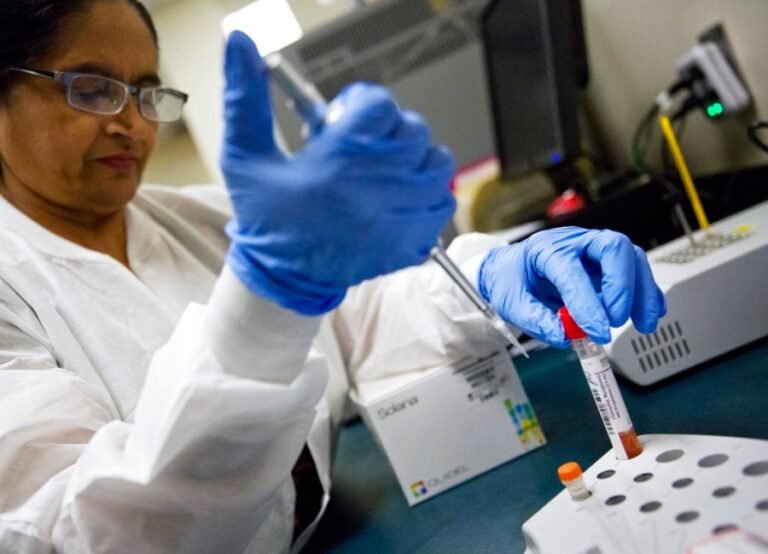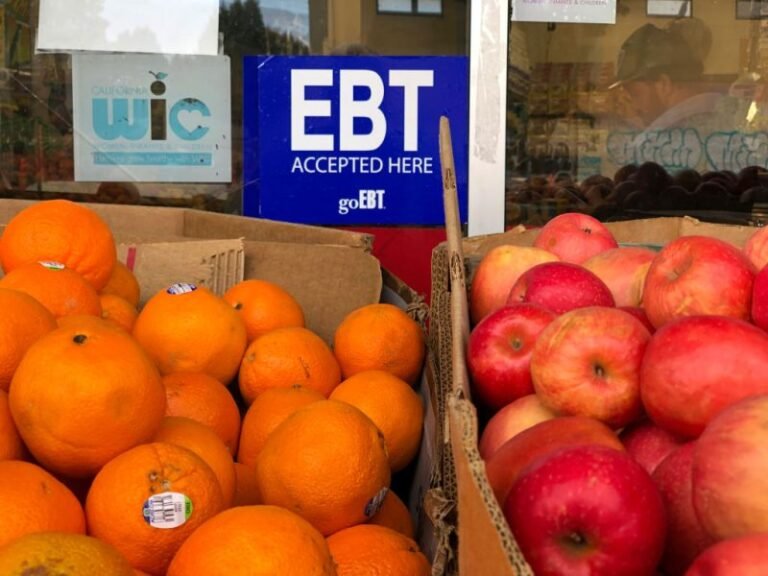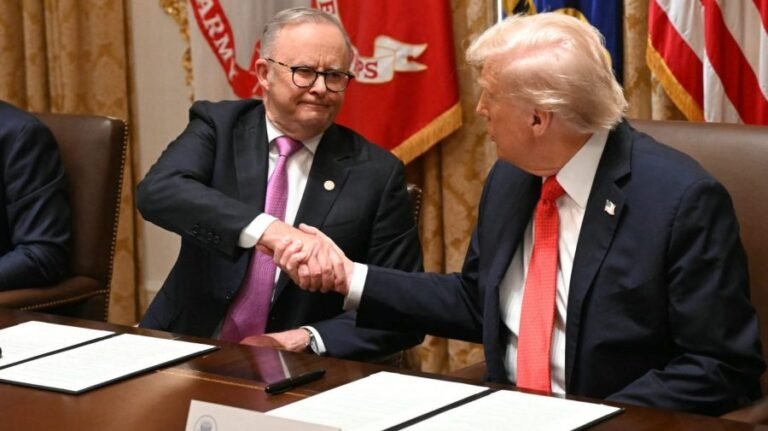
This September, the Pittsburgh Steelers faced off against the Minnesota Vikings in Dublin, Ireland. Pittsburgh won by a score of 24 to 21.
But this game represented much more than another football match. Official attendance shows 74,512 fans filled a sold-out Irish stadium with another 568,000 in the queue wanting tickets, a demand so high the NFL called it “off the charts.”
In total, 7.9 million people viewed the competition on the NFL Network, the highest rating ever for an international game. And that event was preceded by a Kansas State vs. Iowa State contest that saw 47,000 fans gather at another Dublin stadium.
In an interview with me, U.S. Ambassador to Ireland Geraldine Byrne Nason said both games generated $200 million that flowed into Ireland. And that was only the beginning.
The NFL Dublin contest brought several notable dignitaries to the Emerald Isle. Minnesota Gov. Tim Walz (D) led a trade delegation that traveled the breadth of the country seeking investment opportunities. A Pennsylvania delegation, led by Lieutenant Gov. Austin Davis, met with Ireland’s elected leaders.
The Irish ambassador told me that an bipartisan congressional delegation led by Rep. John Joyce (R-Pa.) met with the Irish-U.S. Chamber of Commerce to discuss trade and economic investments and participated in a seminar focused on health care.
But the benefits associated with the game went far beyond the focus on economic and trade issues. Irish singer Laura McNamara, known professionally as Lyra, gave a stirring performance of the Irish national anthem that went viral and was highlighted on a podcast hosted by Kansas City Chiefs tight end Travis Kelce and his brother, former NFL player Jason Kelce.
The use of sports as a diplomatic tool was highlighted in 1971 when a U.S. table tennis team was invited to play several games in China. “Ping-pong diplomacy” led to President Richard Nixon’s historic visit, with full U.S.-Chinese diplomatic relations established seven years later.
According to Byrne Nason: “In a 40-year career, sports is one of the new and emerging areas of diplomacy and creates a space that is desperately needed.”
The ambassador noted, “The bipartisan [congressional delegation] led by Rep. John Joyce (R-Pa.) showed that it’s much more fun to be sitting beside each other at an NFL game than on a committee on Capitol Hill, talking about sports, yet still doing serious business. This is what sports diplomacy promotes.”
Sports builds relationships. In Ireland following the end of the “troubles,” Northern Ireland and the Irish Republic have one national rugby team that brings both sides together. In Ireland, sports and politics mix interchangeably.
Sports are just one means of easing tensions. Music is another. Today, Irish musicians have their devoted fans in the U.S.
For decades, the Irish band U2 has had number one releases on the Billboard charts. The Irish singer Hozier has likewise topped the charts. Fontaines D.C. (with its initials standing for Dublin City) provided the soundtrack for the Paramount-plus series “MobLand” and Netflix’s “House of Guinness.” Both Hozier and Fontaines D.C. are especially popular with Gen Z.
Promoting the arts is a strategy adopted by the Irish government that encourages cultural exchanges. Music, film and sports enrich what the Irish ambassador memorably described as the “forever romance” between the Irish and the nearly 32 million Irish Americans.
And that “forever romance” was fully evident during the football events held in Dublin. Amb. Byrne Nason told me that prior to the Steeler-Vikings game she witnessed people dancing in the streets, as fans from around the world were greeted with “a hundred thousand Irish welcomes.”
That goodwill comes at a time of uneasiness in U.S.-European Union diplomacy. Trump has imposed a 15 percent tariff on goods shipped from the E.U. to the U.S. As Byrne Nason put it, those tariffs are a source of “great uncertainty that impacts people, both in terms of trade and investment, and that’s not good for the U.S.”
Surveys conducted by the Irish press finds that 70 percent of Irish citizens are concerned about traveling to the U.S., and 74 percent do not want Trump to make an official state visit to Ireland.
Sporting and cultural exchanges provide moments of relief when diplomatic relationships are strained. Now more than ever nations are engaging in “soft diplomacy.” Today, that term is a euphemism in a complicated and intertwined world.
While trade, economic and other bilateral issues may first come to mind when thinking about the art of diplomacy, cultural exchanges are just as essential. And when it comes to the U.S.-Irish relationship, both sides of the Atlantic are looking to such exchanges to provide moments of relief.
John Kenneth White is a professor emeritus at The Catholic University of America. His latest book is titled “Grand Old Unraveling: The Republican Party, Donald Trump, and the Rise of Authoritarianism.”





